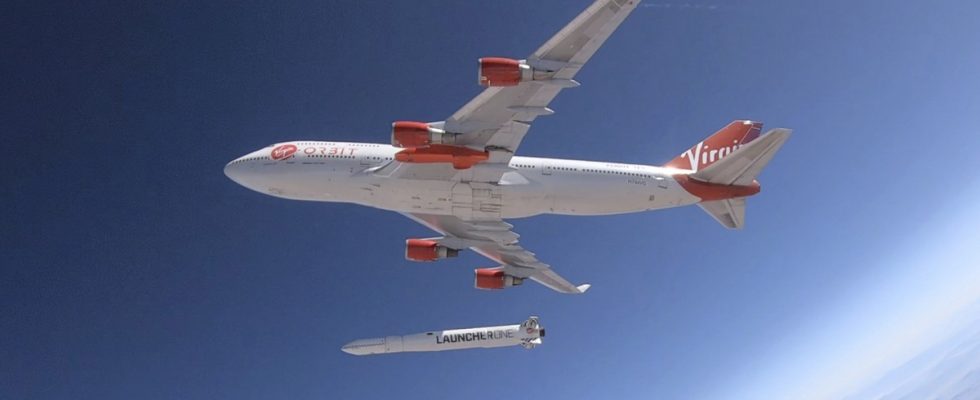It is rocket science – the engineering skill of launching a fuel-fired rocket into space is anything but routine. Even if the launcher Falcon 9 of the Californian aerospace company Space-X now often starts several times a week and wants to make this believe. As long as such a project runs smoothly, it looks routine. But alas, if something doesn’t work out, this can sometimes deter the lenders. A rocket doesn’t even have to explode when it’s launched.
Even seasoned space entrepreneurs like billionaire Richard Branson are not immune. His listed company Virgin Orbit has now filed for bankruptcy Chapter 11 of US bankruptcy law. The goal is “to achieve a sale of the company,” according to a statement from Virgin Orbit. The group’s own investment company will initially provide around 31 million dollars to finance the sales process.
Virgin Orbit has been transporting satellites into space since 2020 and has nothing to do with the tourism flights into space of the sister company Virgin Galactic. It was only in January of this year that Virgin Orbit wanted to launch nine small satellites into low earth orbit from Great Britain for the first time. According to the company, the flight initially went according to plan. However, after problems with the fuel supply, the second stage did not reach the intended orbit and crashed into the Atlantic with the payload.
The failure in January may have been the final tipping point for the company’s financial woes. When Virgin Orbit announced in mid-March that it would suspend operations to save capital and hold talks with potential lenders, the stock at times fell by up to 76 percent to 44 cents compared to the start of the year. Last week, the company then announced that it would have to lay off 675 employees – about 85 percent of the workforce. It was said that it was not able to raise enough capital to continue the business to the usual extent.
Virgin Orbit transports its cargo with the small rocket Launcher Onewhich at an altitude of around 11 000 meters from a converted Boeing 747 launched into Earth orbit. Virgin Orbit already had problems before the failure in January: the first launch in 2020 failed, but four successful flights followed, during which the company was able to place 33 small satellites in orbit. The stock, which went on sale in spring 2019 for around ten dollars, has been losing steadily since then. According to preliminary figures, Virgin Orbit expects a loss of a good 191 million dollars for 2022. However, more flights from Mojave Air and Space Port in California were planned for 2023.
There are also problems with tourist flights
Richard Branson also has little luck with his Virgin Galactic tourist flights. During the last test flight of the spacecraft in July 2021 at an altitude of about 86 kilometers, he was on board for the first time. However, after irregularities in the trajectory had occurred, the aviation authority FAA (Federal Aviation Administration) had issued a flight ban for several months. At the end of February, Virgin Galactic boss Michael Colglazier announced that he would start commercial flight operations in the second quarter with an improved aircraft.
German start-ups will also be keeping a close eye on developments at Virgin Orbit: Hyimpulse, Isar Aerospace and Rocket Factory Augsburg also want to make money with small rockets. Sooner or later it will become a highly competitive market, with around 150 founders worldwide working with these microlaunchers. Just a week ago, Isar Aerospace announced that it had collected 155 million euros from several investors. With a total of 310 million euros, they are “the most financially independent New Space company in the European Union”. The US company Rocket Lab has had around 30 successful flights with its small rocket since 2018 electron completed.

